Vantage Care Monitoring gives healthcare professionals the extra support they need to proactively manage potential fall risks and instil confidence in providing high quality care, privacy-first care environments.
Sequence of fall alert


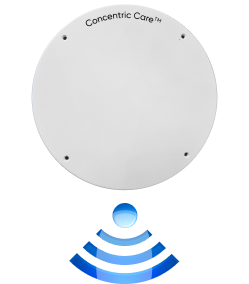
With falls and injuries measured as a key Quality Indicator (QI), implementing a robust falls intervention strategy is essential for residential aged care providers committed to delivering safe, high-quality care.
Proactive resident monitoring strengthens this approach by enabling faster response times, supporting informed admission assessments, facilitating ongoing safety alert reporting, enabling review of incident feedback, timely care plan adjustments and streamlined reporting aligned with the Aged Care Quality Indicators Program.
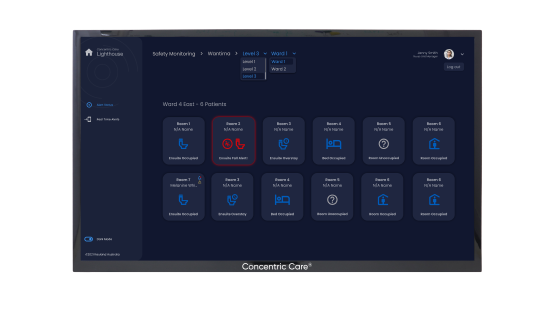
Hospital falls are a universal burden, and digital, responsive interventions can be implemented to assist in fall prevention. A digital workflow system can pro-actively monitor patient movement and activity, alerting healthcare staff to potential fall risks in real-time to take immediate action, therewith reducing the likelihood of falls and looking to reduce injuries.
Discreet detection and monitoring of movement within a facility assists greatly in tackling challenging, laborious areas such as managing fall risk, capturing care time spent, remaining compliant with for care quality and safety standards while ensuring privacy of care consumers and staff.
Reduce the harm associated with falls remaining undetected through discrete, 24/7 continuous monitoring of consumers in their room or ensuite
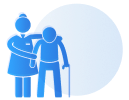
Using sensors combined with location tracking with the capability to detect and record essential activity of staff present in a room, care time, and possible fall intervention data
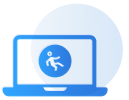
Through a central dashboard, setting up specific profiles of at risk individuals who require additional support, plus the possibility of specific event notifications such as out of bed or ensuite entry, along with in-room activity or wandering
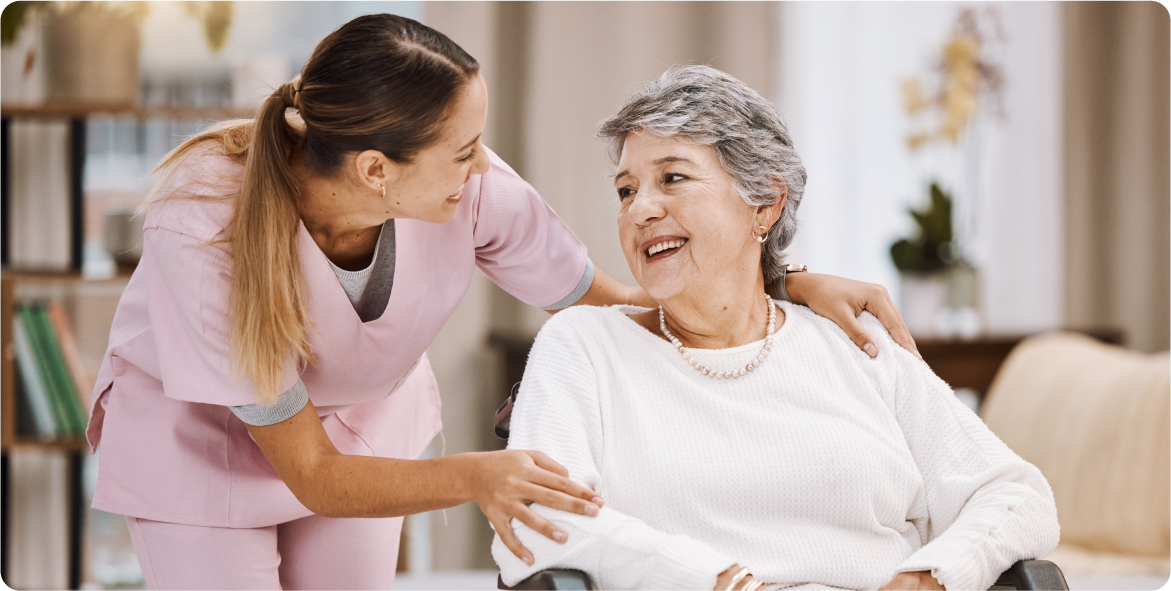
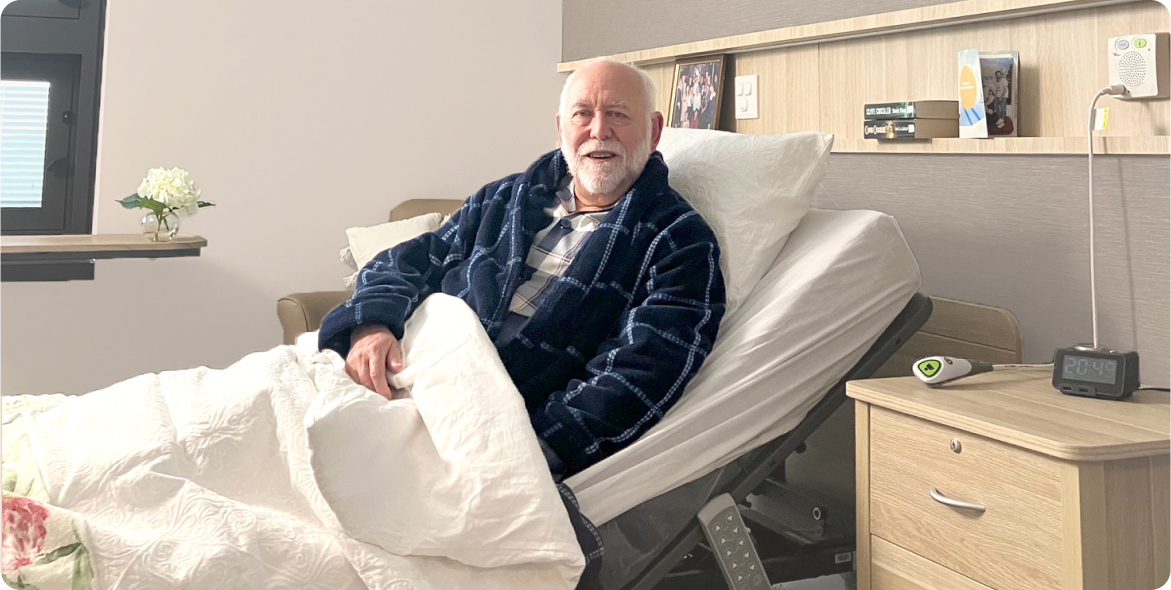

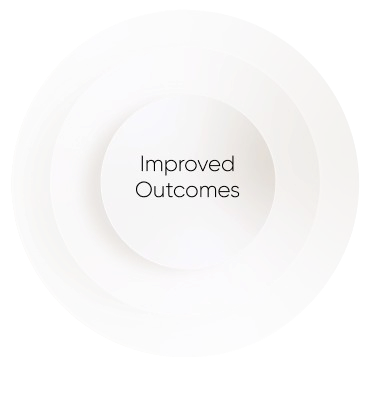

Ensuring staff flexibility, mobility and pre-emptive care assistance tailored to individual profiles and time of day. Evening and overnight staff can be deployed according to live in-room activity or high-risk profiles. With such 24/7 monitoring security in place, any safety alerts are instantly detected and automatically notified.

Empowering caregivers with real-time data that allows for quicker response times, ensuring being kept up to date on their mobile phones or at the staff station for more personalised care.
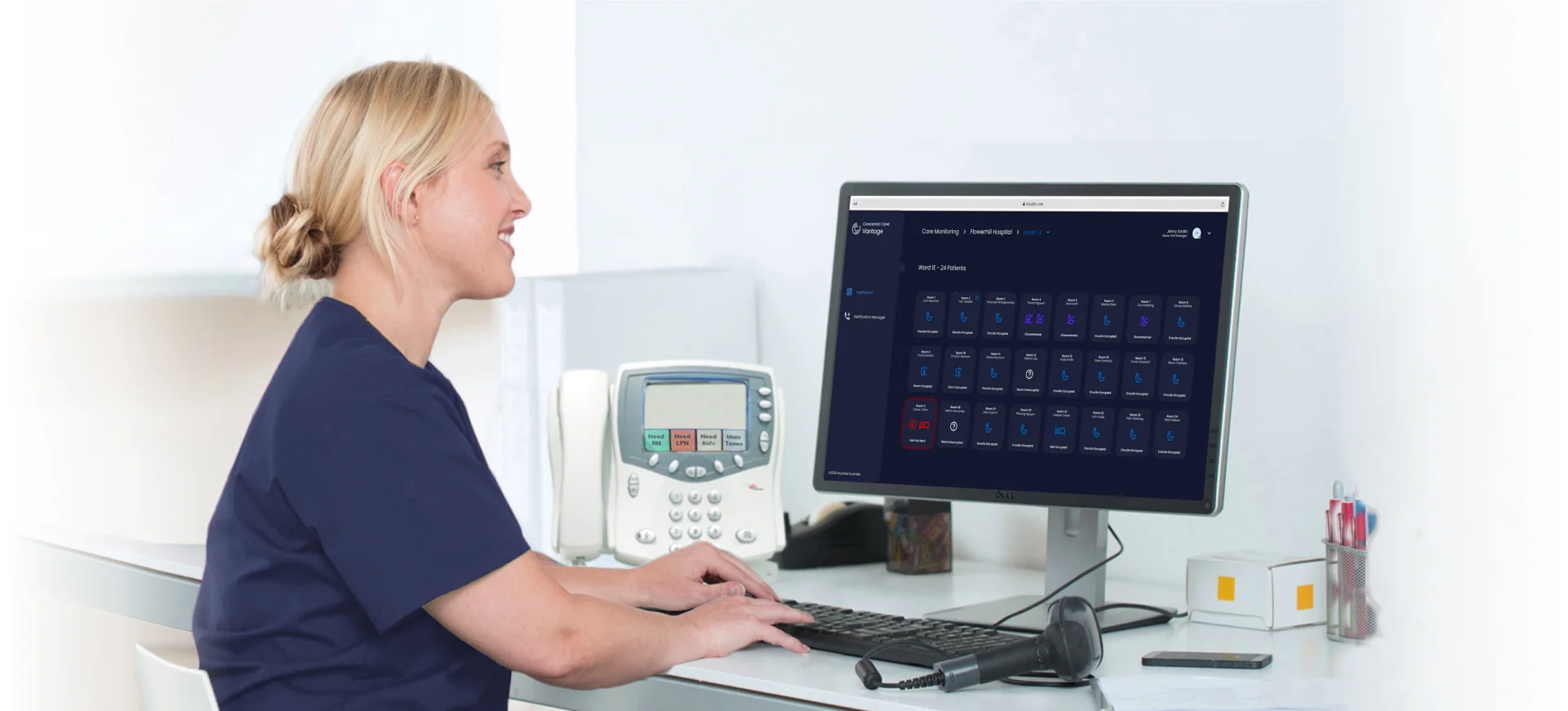

“We’re very excited to introduce this innovative new technology, we believe it will be a significant improvement to the way we manage our falls risk.”
“We’re very excited to introduce this innovative new technology, we believe it will be a significant improvement to the way we manage our falls risk.”
Improve response time and care with faster, real-time communication with patients and residents.

Understand care activity and performance via instant actionable workflow data.

Efficient, coordinated critical communications that keeps staff connected and informed.